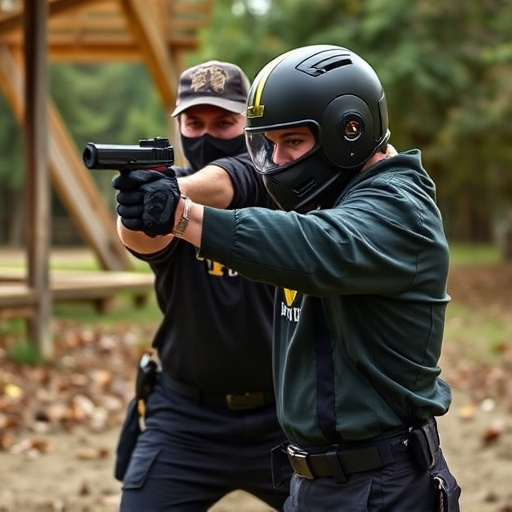The legality of compact stun guns for purse carry varies significantly across the United States due to state-specific regulations, ranging from no restrictions to permit or license requirements. Before owning one, it's crucial to understand your state's laws, which govern power output, size, and carrying permissions. This knowledge ensures responsible ownership and compliance, avoiding legal repercussions. Individuals should research local ordinances, obtain necessary permits, and be prepared to defend their right to self-defense. Staying informed through online forums, community boards, and non-profit resources is vital for navigating these varying regulations.
“Exploring the legal landscape of compact stun guns, this comprehensive guide breaks down state-by-state restrictions and regulations. With an increasing focus on personal safety, understanding the legality of carrying a stun gun in your purse is essential for every aware individual.
From general laws to specific exclusions, we offer insights into navigating the complexities. This article empowers you to stay informed, ensuring you make informed decisions regarding compact stun guns for purse carry. Discover state-specific rules and stay ahead of changes.”
- Understanding Stun Gun Laws: An Overview
- The Legalities of Compact Stun Guns
- State-by-State Restrictions and Regulations
- Purse Carry Permissibility: A Deep Dive
- Common Exclusions and Special Considerations
- Staying Informed: Resources for Gun Owners
Understanding Stun Gun Laws: An Overview
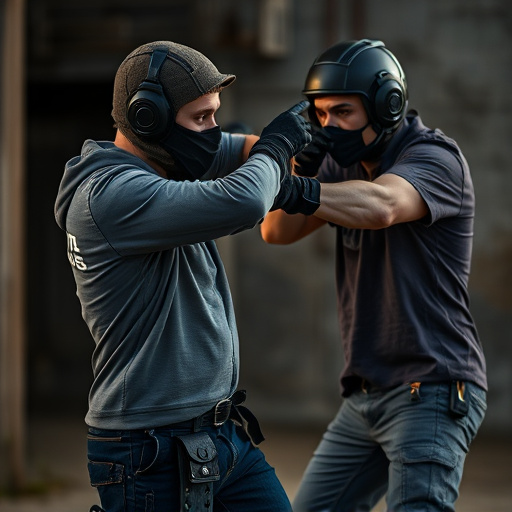
In the United States, the legal landscape surrounding stun guns varies significantly from state to state, with each having its own set of regulations and restrictions. This is particularly important for individuals considering carrying a compact stun gun for personal protection, especially when on-the-go or in their purse. Understanding these laws is crucial for responsible ownership and use. Stun guns, also known as electronic control devices (ECDs), are non-lethal weapons designed to incapacitate an assailant through electric shock. Their legality is based on state statutes, which define the types of stun devices allowed, where they can be carried, and who can possess them.
Many states have provisions for the legal possession of stun guns, often with certain restrictions. Some allow them only for specific purposes, such as self-defense or law enforcement use. Others require permits or licenses, while a few states have no restrictions at all. For instance, compact stun guns designed for purse carry are generally legal in most southern and western states, but their possession may be prohibited in more populous northeastern ones. It’s essential to research and understand the specific laws in your state before considering stun gun ownership to ensure compliance and avoid any legal repercussions.
The Legalities of Compact Stun Guns
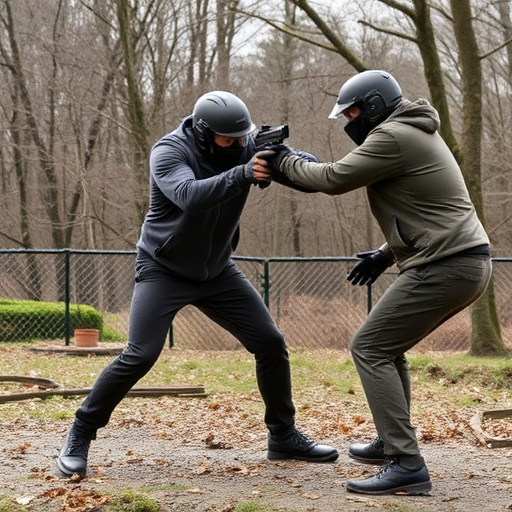
In many US states, compact stun guns designed for purse carry are legal if they meet certain criteria. These typically include a low voltage output (typically 120,000 to 150,000 volts), lightweight construction, and a compact size that allows for easy concealment. Some states, like Texas, permit the carrying of stun devices without a permit, as long as they are not deemed deadly weapons. Others require registration or a concealed carry license.
The legalities surrounding compact stun guns can vary greatly from state to state, with some places banning them entirely and others embracing their use for personal protection. It’s crucial for individuals considering carrying a compact stun gun in their purse to research and understand the specific laws in their jurisdiction. This includes checking local ordinances that might supersede state laws, ensuring compliance, and being prepared to defend their right to self-defense if necessary.
State-by-State Restrictions and Regulations

In the United States, the legal landscape surrounding stun guns varies significantly from state to state, creating a patchwork of regulations that can be confusing for citizens looking to carry personal defense devices. When it comes to compact stun guns designed for purse carry, states have different rules on age restrictions, permit requirements, and public carrying. For instance, some states like Texas allow open carry of stun guns without a license, while others, such as New York, require permits for even concealed carry.
State-specific regulations also dictate where and how these devices can be carried. Some states have specific provisions for stun guns in purses or bags, while others may not recognize compact stun guns as legal defense tools. Understanding these restrictions is crucial for individuals seeking to protect themselves while adhering to the law. For those opting for purse carry, it’s essential to research and comply with local regulations, ensuring they possess the necessary permits and understand any limitations on their stun gun’s use and accessibility.
Purse Carry Permissibility: A Deep Dive
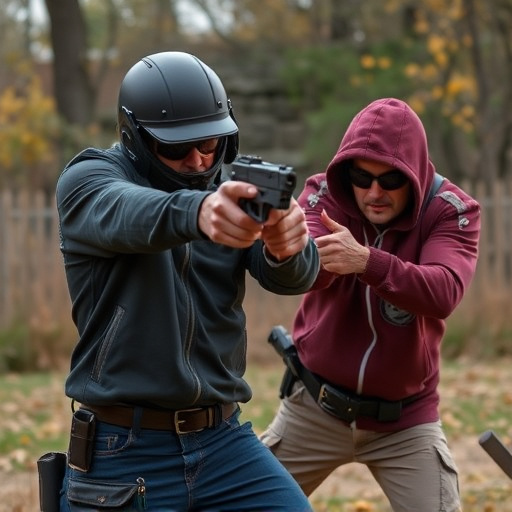
In many states across the US, the legal status of stun guns and their carry restrictions vary widely, especially when it comes to concealment. One specific area of interest is the permissibility of carrying a compact stun gun in a purse. This seemingly simple question has led to a deep dive into state laws, which often provide unique insights into local attitudes towards self-defense.
States like Texas and Arizona allow for open carry of stun guns without a permit, making it easy for individuals to secure their personal safety while out in public. Conversely, other states, such as California, have stringent restrictions on stun gun possession and concealment, even if they’re designed for personal protection. Understanding these nuances is crucial for citizens seeking to exercise their right to self-defense while adhering to the law. The choice of a compact stun gun for purse carry becomes more than just a preference; it’s a strategic decision influenced by state-specific legal frameworks.
Common Exclusions and Special Considerations
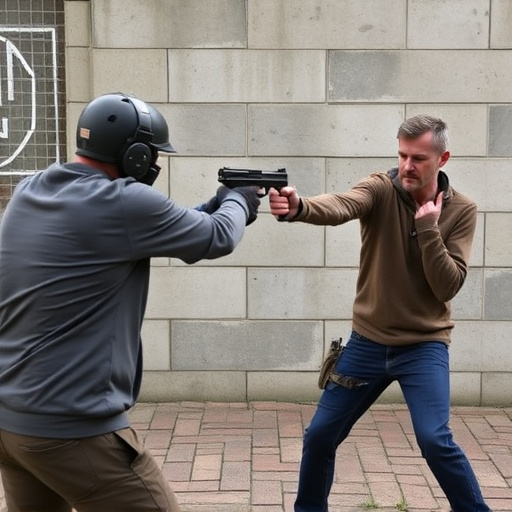
Many states have specific rules regarding who can own and carry stun guns, with certain exclusions and limitations based on age, criminal history, and other factors. For instance, some states prohibit individuals with outstanding warrants or those convicted of violent crimes from possessing stun devices. Additionally, there might be restrictions on the type and power level allowed, especially for compact stun guns designed for purse carry. These regulations vary widely across the US, making it essential to research and understand local laws before purchasing a stun gun.
When considering a compact stun gun for personal protection, awareness of these legal nuances is crucial. Some states may require permits or registration for stun devices, while others have more lenient policies. Understanding these special considerations can help ensure compliance and provide peace of mind when carrying a stun gun for self-defense purposes.
Staying Informed: Resources for Gun Owners
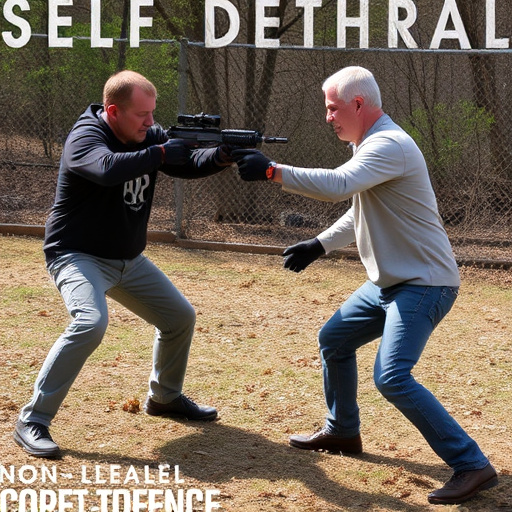
Staying up-to-date on the legal landscape surrounding stun guns is crucial for responsible gun owners, especially considering state-by-state variations in regulations. For those who prefer to carry a compact stun gun for personal protection, understanding local laws is essential. One valuable resource for gun owners is state-specific online forums and community boards where members share insights on the latest legal developments and offer advice on navigating different jurisdictions. These platforms provide real-time information about any restrictions or requirements for owning and carrying stun guns, including compact models suitable for purse carry.
Additionally, non-profit organizations dedicated to gun rights often publish comprehensive guides and updates on state regulations, making it easier for owners to stay informed. Many websites offer detailed analyses of the legal framework surrounding self-defense weapons, ensuring that citizens can make informed decisions about their right to protect themselves. With regular checks against these resources, stun gun owners can ensure they remain compliant and prepared in their respective states.
When considering the legality of carrying a compact stun gun, understanding your state’s specific regulations is paramount. This comprehensive guide has navigated through the intricacies of stun gun laws, highlighting the varying restrictions by state. For those looking to carry a compact stun gun for purse protection, staying informed about local laws is essential. While many states allow some form of concealed carry, there are often specific exclusions and considerations to be aware of. By staying up-to-date with resources provided for gun owners, you can ensure compliance and peace of mind when carrying a compact stun gun for personal safety.
